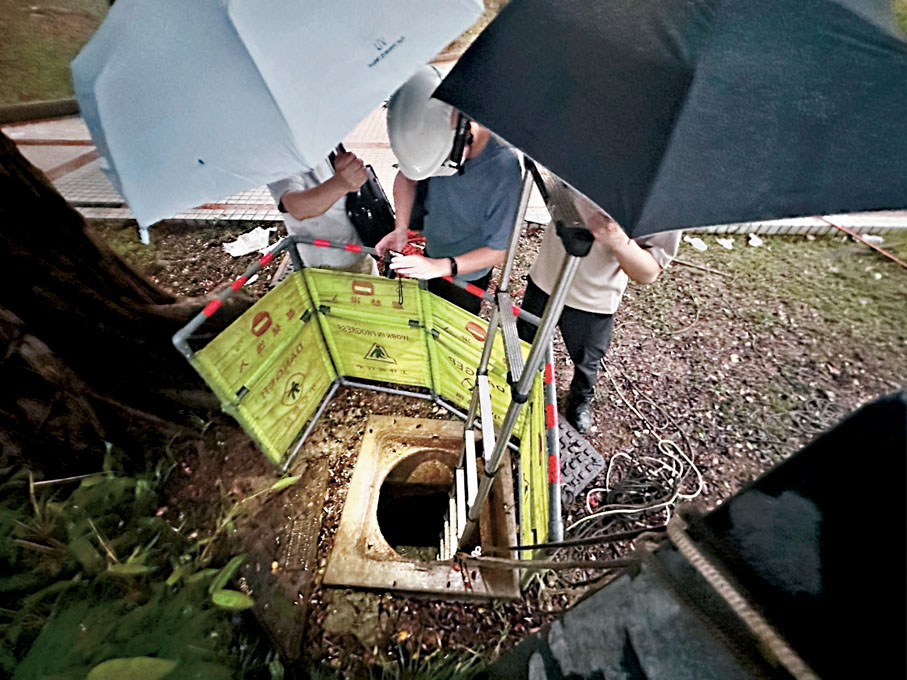【社評雙語道】加強執法完善制度 杜絕密閉空間工業意外

【原文】摘錄自4月24日香港《文匯報》:沙田源禾路源禾遊樂場周一(4月22日)深宵時分發生工業意外,至少造成兩死兩傷。本港近年接連發生同類事故,再次敲響密閉空間工作的安全警鐘。雖然本港《工廠及工業經營(密閉空間)規例》(密閉空間規例)對密閉空間工作的環境評估、工作人員的防護裝備以及東主、承建商及持責者依法操作有明確規定,但當局執法未夠全面,部分工程安全保障不足,少數工人抱僥倖心理施工,導致悲劇屢見不鮮。勞工處、渠務署作為專責部門須更主動擔當監管執法責任,增設工程申報機制,提高相關責任方職業安全意識。
工業意外一宗也嫌多,但本港密閉空間工作的致命意外並不罕見,此次意外同一地點於2006年亦發生過同類意外,致兩名工人死亡;包括此次意外在內,過去3年本港發生3宗同類意外,奪去7名工人寶貴生命。本港密閉空間規例訂明,東主或承建商須採取的安全預防措施,包括委任合資格人士對該密閉空間內的工作環境進行評估及就應採取的措施作出建議、提供有效的強制通風、當進行地底喉管工作時使用認可呼吸器具及安全帶、制訂和實施適當的程序處理緊急情況等;進入密閉空間工作的人員,必須是勞工處認可的「核准工人」,工作時必須佩戴安全帶連結沙井口三腳架,確保及時逃生;渠務署亦必須確保承辦商依足指引和法例施工。
本港已就密閉空間工作制訂法例規管,但相關工業意外屢禁不絕,反映執法未如理想。
2006年沙田源禾路源禾遊樂場發生密閉空間工業意外後,工聯會職業安全健康委員會及香港建造業總工會曾向當時的經濟發展及勞工局和渠務署提出多項建議,要求政府加強對渠務工程的監管,有關建議不少已被採納並成為法例條文,但最大問題是執行仍有未到位的情況,更有建議至今未被採納,令工人安全保障埋下隱患。
有勞工界人士反映,近年勞工處的確有加強巡查進行密閉空間工作的地點,惜多數是在發生了工業意外後的特別行動,且時間只維持兩周左右,巡查結束後忽視安全工作的情況故態復萌;勞工處巡查集中在日間,夜間巡查甚少,夜間工作的安全監管有相當大缺失,此次意外就發生在深宵時分。
目前當局正修訂密閉空間工作相關工作守則,預期今年上半年完成修訂,工業傷亡權益會建議,進行相關工作前向勞工處呈報工程,包括工作內容、施工日期、安全施工方案等,確保處方得知工程及作出巡查,相信有助減少意外,促請勞工處重新考慮將有關建議納入新指引。亡羊補牢,政府不僅要就單一意外進行全面深入調查,更應檢討監管、執法的不足,完善制度以更有效減少意外。
Strengthen enforcement and improve systems to eliminate industrial accidents in confined spaces
【譯文】At least two people were killed and two injured in an industrial accident that occurred at the Yuen Wo Playground on Yuen Wo Road, Sha Tin, in the late hours of Monday (22nd April) Hong Kong has seen a series of similar incidents in recent years, sounding the alarm once again for the safety of work in confined spaces. Although the local "Factories and Industrial Undertakings (Confined Spaces) Regulation" (Confined Spaces Regulation) has clear provisions for environmental assessment of confined spaces, protective equipment for workers, and legal operations by owners, contractors, and responsible parties, the enforcement by authorities is not comprehensive enough, the safety protection for some works is inadequate, and a minority of workers take risks in their work, leading to tragedies that are all too common. The Labour Department and the Drainage Services Department, as the dedicated departments, should take a more proactive role in supervisory enforcement, establish a construction reporting mechanism, and raise the occupational safety awareness of the relevant responsible parties.
While one industrial accident is too many, fatal accidents in confined spaces are not uncommon in Hong Kong. The same location saw a similar accident in 2006, which resulted in the death of two workers; including this accident, there have been three similar incidents in the past three years in Hong Kong, claiming the lives of seven workers.
The Confined Spaces Regulation stipulates that a proprietor or contractor shall take safety precautions, including appointing a competent person to carry out an assessment of the working conditions in the confined space and making recommendations on measures to be taken, shall ensure that effective forced ventilation has been provided, shall ensure that a person entering a confined space for underground pipework is properly wearing an approved breathing apparatus and a suitable safety harness, and shall formulate and implement appropriate procedures to deal with emergencies. The Confined Spaces Regulation also stipulates that only "certified workers" are allowed to enter or work in the confined space, and they should wear a safety harness connected to a tripod over the manhole to ensure timely escape. The Drainage Services Department should also ensure that contractors comply with guidelines and regulations.
Hong Kong has established regulations governing work in confined spaces, but the recurrence of related industrial accidents reflects that enforcement is not ideal.
After the industrial accident in the confined space at Yuen Wo Playground on Yuen Wo Road, Sha Tin, in 2006, the Occupational Safety and Health Association of the Hong Kong Federation of Trade Unions and the Hong Kong Construction Industry Employees General Union made several recommendations to the then Economic Development and Labour Bureau and the Drainage Services Department, calling for the government to strengthen supervision of drainage works. Many of the recommendations have been adopted and enacted into law, but the biggest problem is that implementation is still not in place, and some recommendations have not yet been adopted, posing hidden dangers to the safety of workers.
Labour sector representatives have reported that in recent years the Labour Department has indeed stepped up inspections of locations where work is carried out in confined spaces, but regrettably, most are special operations after the occurrence of industrial accidents, and the duration of such operations lasts for about two weeks only. The situation of neglecting safety work after the completion of the inspections has recurred; the inspections of the Labour Department focus on daytime, with very few at night, and there is a significant gap in safety supervision for night work, as this accident occurred in the late hours.
The authorities are currently revising the Code of Practice for work in confined spaces, and the revision is expected to be completed in the first half of this year. The Association for the Rights of Industrial Accident Victims suggests that before carrying out related work, a report should be submitted to the Labour Department, including the content of the work, construction dates, safety construction plans, etc., to ensure that the department is aware of the project and carries out inspections, which is believed to be conducive to the reduction of accidents, and urges the Labour Department to reconsider incorporating the relevant proposals into the new guidelines. The Government should not only conduct a comprehensive and in-depth investigation into a single accident, but also review the inadequacies in supervision and law enforcement, and improve the system to reduce accidents more effectively.
◆ Tiffany
